|
It's worse than we thought....
More than 70,000 birds spanning 65 species on Natural England Death List According to Natural England, Barn Owls, Swallows and House Martins pose a risk to public health. Yes, Natural England have been issuing licences to kill birds such as these iconic and treasured species, in the interests of 'health and safety'. As part of my ongoing campaign aimed at investigating, overhauling and restructuring Natural England, I've obtained some terribly shocking statistics for licences that they issued between 2014 and 2018. More than 70,000 birds spanning 65 species appear on the list which details the licences issued by Natural England, officially permitting the extermination of our native and migratory birds in vast numbers. Swallows, House Martins, Greenfinches, Chaffinches, Goldfinches and even Swans... While you recover from reeling at that figure, wait till you see just which species Natural England permitted licencees to kill. The list includes Swallow, House Martin, Blue Tit, Chaffinch, Goldfinch, Linnet, Mallard and even two species of Swan. And many many more. Brace yourselves, it is a truly awful catalogue of our most cherished species, all of which are on the kill list of Natural England. Barn owl, Barnacle Goose, Bewick's Swan, Black Cap, Blackbird, Black-headed Gull Blue Tit, Brent Goose, Bullfinch, Canada Goose, Chaffinch, Chiffchaff, Coal Tit Common Buzzard, Common Gull, Coot, Cormorant, Crow, Curlew, Dunnock Egyptian Goose, Fan tailed Dove, Feral Pigeon, Golden Plover, Goldfinch, Goosanders Great black-backed Gull, Great Tit, Green Finch, Grey Heron, Greylag Goose Herring Gull, House Martin, House Sparrow, Jackdaw, Jay, Kestrel Lesser black-backed Gull, Linnet, Long-tailed Tit, Magpie, Mallard, Monk Parakeet Moorhen, Mute Swan, Oystercatcher, Pheasant, Pied Wagtail, Pink-footed Goose Raven, Red Kite, Red-breasted Merganser, Ringed Plover, Robin, Rook, Ruddy Duck Skylark, Starling, Stock Dove, Swallow, Treecreeper, Wigeon, Willow Warbler Woodpigeon, Wren The information is vast and complex, I'm still wading through statistics which make for depressing reading. It seems that Natural England have been sanctioning the extermination of our bird life in huge numbers for years - and, one might suggest, for vague and spurious reasons. Whether it is to protect the fishing or farming industries or to 'preserve public health and safety', the whole system seems to be shambolic, mystifying and above all, shockingly brutal. It's hard to take it all in. So, allow me to select a few species and tell you the reasons that Natural England decided it was acceptable to exterminate them. Coot : 548 to preserve public health or safety / falconry aviculture. Cormorants : Several thousand to prevent damage to fisheries. Great Black Backed Gull : More than a thousand for scientific research and preserving fauna. Greylag Goose : Several thousand for damage to livestock and foodstuffs for livestock. Corvids (including Rooks and Jackdaws) : More than 2,500, including 1000 Crows House Sparrows : Hundreds allowed to be shot to 'preserve public health'. Swallows and House Martins were permitted to be killed, injured or taken 'by hand' to preserve public health or safety. Also their nests and eggs were permitted to be destroyed for similar reasons. Even 4 Barn Owls were permitted to be slaughtered ('by hand') in Dorset for being a threat to public safety. The list goes on - and on. If there is a glimmer of hope coming out of these awful revelations, then it is that 100,000 people have signed the petition to stop this mass killing of English birds. We are also getting the support of some respected members of parliament and one prominent MP has tabled a written question to Environment Secretary. I've also been in touch with new chief in waiting of Natural England, asking him to pledge his own commitment to overhaul the agency, making it more transparent and accountable to the public. Meanwhile I have requested a meeting with Environment Secretary Michael Gove, though so far I have had no response. It is vital that we keep on pushing our petition, especially at this stage where we are getting members of parliament behind us, only public pressure can stop Natural England from issuing these licences, bring about more transparency in their terrible licensing system and make them answerable to us, the British public. Thanks for all your amazing support, please keep sharing this, we can and will make a difference. Best, Jase Sign the petition HERE
47 Comments
"We have to shift attitudes from promoting extermination and destruction to promoting nurture and preservation. Life is fragile."
Today I heard an interview with a group of learned scientists who issued a warning to the world that we are on the brink of environmental catastrophe. Not 'news' really. They announced that saving the planet is not just about addressing climate change or plastic waste or over-fishing. It's about everything. Some of us knew that all along, but it can take science a little while to catch up with those who have an empathy for the natural world around them. I'm sorry if that sounds incredibly smug but I do believe that simple truths are often missed in the quest for hard facts and figures. It doesn't necessarily take a scientist to highlight these truths, though at least when backed by science more people seem to listen. In spite of the message being shared widely, it will take a whole lot of effort to persuade the disconnected majority that nature, the planet - and we - are in trouble. Detached from nature And that trouble began when the human race became detached from nature. How did that happen? It's hard to say but it coincided with the arrival of technology and the fashion for greed. The 'must have' society, that has flourished really quite recently, expects instant indulgence at any cost. That is at odds with the natural order of things, nature provides enough but cannot hope to satisfy the demand of those who want too much. For those people, nature seems to be incidental and disconnected from their lives. This detachment quickly turns into indifference towards the the natural world and then people begin to forget the basic laws of cause and effect. Intolerance of nature Now, tragically, that initial indifference towards nature has tipped into intolerance. An intolerance of nature means that for many people nature has become an obstacle to progress. And this is why we see cruelty towards wildlife and destruction of its habitat to make way for more human infrastructure. If that continues, undoubtedly there will be no way back from the brink. Humankind will survive for a while, mostly ignorant of our imminent demise, while life around us perishes at an alarming rate. We are already seeing it now in the devastating population declines of insects and the extinction of many species. Then it will be our turn of course because we are an integral part of nature - whether we choose to recognise that or not. Is disconnection from nature a disease? I recently read a very illuminating article by the renowned author Dr Steve Taylor in which he puts forward a theory that this disconnection from nature is in fact a disease, a type of psychosis. He calls it ecopsychopathy. "On an immediate level, ecopsychopathy results in a degradation of our living environment which causes dislocation and unease," he says, "on a more macrocosmic level, ecopsychopathy threatens the survival of the human race. The end point of our exploitative and manipulative attitude towards the natural world is surely the complete disruption of the fragile eco-systems on which our life depends. This disruption is underway already, resulting in the mass extinction of other species.... and if it isn’t checked, human life will become more and more challenging, until we suffer cataclysmic consequences." It is a real shocker isn't it? Probably because it rings, loudly, the bells of truth. Being kind to life is the key to our survival This 'impending doom' is what compels me to write about the problem as I see it. This is why, in my very small way, I campaign against the cruelty that we, as human beings, inflict on wildlife through our disconnection with nature and the widespread acceptance of killing any creature that interferes with our desire to put what we want above all else. For me, being aware of the fragility of life and being kind to that life is the key to our own survival. This is why preservation of life, even a small individual life - no, especially a small individual life - must be at the centre of all that we do. The human obsession with 'managing' and 'controlling' wildlife is clumsy and terribly cruel, causing imbalance while extinguishing life. We have to shift attitudes from promoting extermination and destruction to promoting nurture and preservation. Life is fragile. Dr Taylor is a 'glass half full' kind of chap, he sees a 'cure' for the unsettling disconnection many have with nature. "Perhaps," he says, "we are beginning to remember something that other peoples have always known: that we don’t live in the world, we are part of it." I hope he's right. But time is running out. We must, right now, realise we are indeed part of the world we live in, part of the whole fragile, delicate web of existence. We need to repair the damage, to nurture the life. We need to be kind. "Kindness, I've discovered, is everything in life" Isaac Bashevis Singer "The utterly shameful badger cull is an example of a regulatory body that has lost its marbles...."
My recent piece about the RSPB culling animals in the name of conservation got many people talking. I've been reading the comments that people have posted across social media and on my blog, and I can certainly see that the subject matter polarises opinion. Healthy debate is good but, like me, many of you see this type of wildlife 'control' as an excuse to kill animals and sometimes perhaps even as a cover for those who actively enjoy hunting. There seems to be a cold and clinical approach from many of those who support this type of heavily organised 'management' of nature. Questioning the competence of those who carry out the killing.... I'm not alone in feeling uncomfortable that it is overseen and regulated by a handful of officially sanctioned agencies, some of which have huge financial resources behind them - though perhaps less generous reserves of human-kindness. Can government sponsored agencies be trusted with conserving and protecting our natural resources? I think not. They will have agendas, they are bound to. We also find ourselves questioning the methods of 'control' and indeed the competence of those tasked with carrying out the killing. One of those commenting on my blog post, who identifies as a conservationist, referred to animals such as deer, foxes, ravens etc. as 'target organisms', and she suggested that there is no difference between 'bashing and killing bracken' and killing animals. I found that quite chilling. Once someone becomes detached from the idea that animals can feel and think, I suppose it is possible to view their extermination as nothing more than 'bashing and killing bracken'. But that's a real problem. Take the slaughtering of thousands of geese on the Island of Islay, which has been the subject of much controversy, especially after video footage emerged of the Scottish Natural Heritage approved cull. The video showed a startlingly clumsy effort to shoot the geese which left many of them badly injured. The result was that many were cruelly clubbed to death by the (quote) 'experienced professional marksmen' employed by SNH. Hmm. Is that really the best, most humane method of conservation we have in the enlightened 21st century? Based on that example, can we ask whether today's conservation methods are any more humane than those used to club fur seals to death? And it seems that such blundering killing methods are not confined to geese. BASC advice on grey squirrels: empty into a sack and dispatch through a swift, heavy blow to the head. With new laws about to come into force at the end of next month, making it illegal to rescue and release 'invasive' species, advice from the British Association for Shooting and Conservation suggests that captured grey squirrels should be "emptied into a sack and ...dispatched through a swift, heavy blow to the head". Imagine the suffering at the hands of inexperienced would-be 'conservationists'.... Social media betrays culture of killing among local 'conservationists' Take a look at the shocking comments I found on a woodland owners facebook group. Someone had posted about the subject of grey squirrels. The comments that follow the post are breathtakingly savage and illustrate that if we are not careful, conservation can end up in the hands of those who actually revel in the killing of animals - they make no secret of the fact that they take great pleasure in shooting wildlife. Here's a typical exchange: "328 culled in my woods" boasted one member. This delighted another, "you genocidal murdering psychopath" To which the squirrel culling 'conservationist' replied, "I know, lol". Another suggested mixing plaster of Paris with their food... "How about squirrel food mixed with plaster of Paris? Have some nice little statues" Even if in jest, is that funny? These are not just idiots, they are dangerous idiots - and my fear is that they might be typical of those tasked by our national agencies (Natural England, Scottish Natural Heritage, RSPB et al) with 'managing' (ie. exterminating) our wildlife. Smug and disconnected micro-management of our countryside If we want to see a carefully managed and controlled environment then we should pay a visit to the zoo, but what we surely don't want is our countryside micro managed by officials sitting at desks in city centre offices, issuing licences to those with dubious intentions and questionable competence, to eradicate specific species based on vague assumptions. It's smug and disconnected from the natural world for which they purport to care. The utterly shameful badger cull is an example of a callous decision by a regulatory body that has lost its marbles. Badgers are being scapegoated for the intensive farming that is spreading disease. Thousands of geese are killed to protect farming interests. Mountain hares, currently at 1% of their 1950's population, are still being massacred to protect the livelihoods of gamekeepers. Foxes are labelled a 'pest' even though the majority of young people in this country have never even seen one - and the hunts continue to kill them even though it is against the law. And, as I've reported, licences are issued to exterminate songbirds because it is easier to kill them than to deter them from getting in the way of human activity. Is this conservation in the 21st century? The result of this clinically managed conservation will be an unnatural countryside, inhabited by carefully chosen and 'controlled' species and without the 'pests' that get in the way of the plan. Support independent wildlife rescues - compassion without discrimination Time perhaps to lend our support to the many tiny independent wildlife rescues run by dedicated volunteers. They might struggle for funding but they have boundless reserves of kindness and compassion for all of our wildlife. Humans have always destroyed habitat and persecuted wildlife - and have often tried to justify it under the banner of conservation. Nothing has changed. The least we can do is treat any animal, that somehow manages to coexist with us, with kindness and compassion. And I don't care if I'm labelled a 'deluded townie', or if I'm accused of 'not understanding country ways' - at least I have enough empathy with nature to see that all life is fragile and precious enough to be worth conserving and preserving. Whatever species it is. |
If you appreciate what I write about, please consider showing your support by buying me a virtual coffee!
Click the button below! Thanks :) Archives
July 2023
|
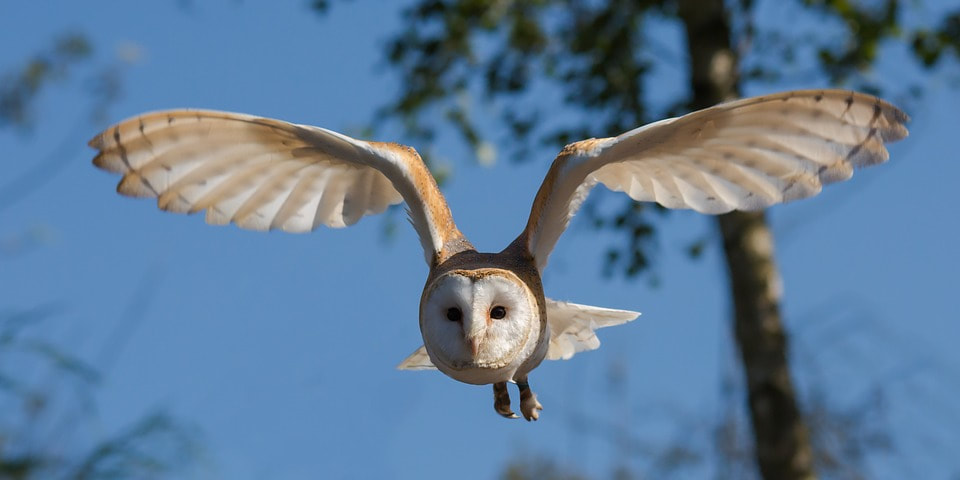
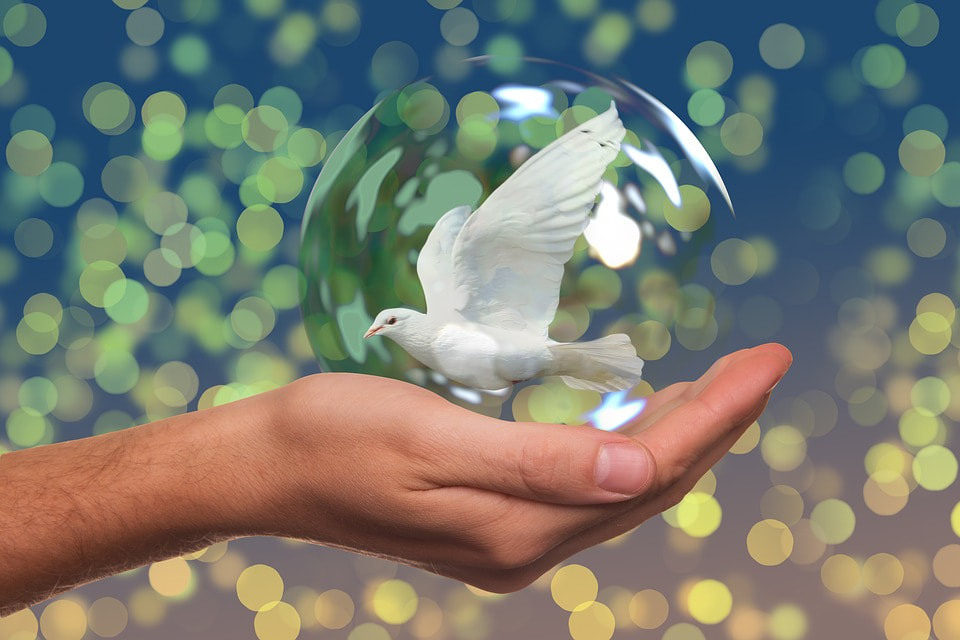
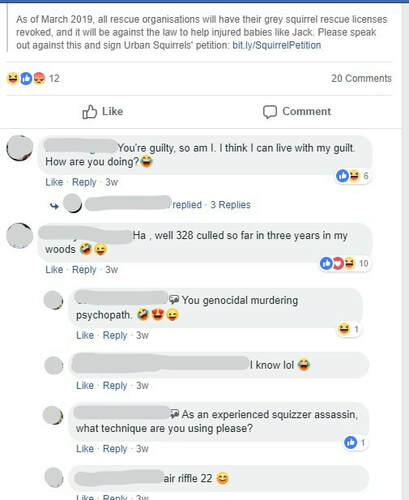

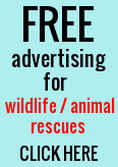
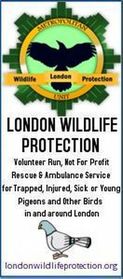
 RSS Feed
RSS Feed